The General Manager of Lagos State Traffic Management Authority (LASTMA), Engr. Olajide Oduyoye is not your regular public servant. A UK-trained transportation management professional, barely two years as the head of the organisation, Oduyoye has introduced reforms that if allowed to bear fruit, will fix the negative public image that LASTMA has come to be associated with over the years. In this exclusive interview with Kayode Shopekan and Donatus Anichukwueze, Oduyoye speaks on what he’s done to reposition the organisation.
Let’s discuss your journey to becoming LASTMA General Manager.
Join our WhatsApp ChannelI wanted to be an artist since I was good at drawing. However, when I was slow in gaining admission into the university, I got fed up and moved to England. There I applied to study transportation management. Considering how we are as Nigerians, that was an unpopular subject. But you see, I have always been interested in transportation; the movement of people and goods.
At the expiration of my studies, I came back to Nigeria for my national youth service. I served at the Nigerian Ports Authority (NPA) in 1984, after which I went back to England and began my master’s programme. I studied airport planning and design at the Loughborough University of Technology. I would work in Natwest Bank. Later I got a job as a traffic engineer with the London Borough in Fulham. I rose through the ranks to become a principal engineer responsible for road maintenance. I was responsible for the traffic management of all the stadiums in London Borough of Amersfield and Fulham and that includes Chelsea FC, Fulham and Queens Park Rangers.
All this while I had the desire to return to Nigeria. I wanted to contribute my quota to my country, and so I began to look for a job in Nigeria. When I came on holiday I went for an interview where they said a government agency was hiring. I did the interview with Philips Consultancy. When they said that they’ll get back to me, I went back to England. One day the then Managing Director of LAMATA who happened to be my senior in secondary school and my senior in university in England where we studied transportation together called and said, “Jide you came for an interview a while ago.”
READ ALSO: LASTMA Dismisses Officer Over Bribery Allegation
I was surprised how he knew and then he said he was the MD. We had a little interview in London, after which he invited me to Nigeria for a proper interview. When I came for the interview, they offered me a job. They were just starting, then they told me the salary. My children had also relocated to Nigeria, they were attending Greenspring School which is quite pricy. When I deducted the cost of school fees for the three girls from the salary I was being offered, there was nothing left for me.
I rejected the offer but I promised him that if there was anything he wanted me to do for him in Lagos as my senior, that he should get in touch with me. So I went back to England and continued my job until later another opportunity came from the same LAMATA. This time the salary was not going to be in naira, I was going to be coming down as a technical adviser under the World Bank. They were going to be paying in foreign currency and when I calculated the exchange rate, I said ok this one is not bad. That was how I came to Nigeria and started working with LAMATA as a technical adviser.
Part of my job function was improvement design. I was in LAMATA from 2005 until the World Bank contract finished. Now it was a case of if I wanted to go back to England or remain in Nigeria. So LAMATA now offered me a permanent position as a Deputy Director. I wasn’t paid again in foreign currency and my salary was slashed by more than half. I chose to stay and became Deputy Director for Traffic Safety, Road Safety in LAMATA until 2019 October when I got appointed to the GM of LASTMA.

What are the challenges you’ve faced and how did you surmount them?
Before talking about the challenges facing the agency, it is good to explain what the agency is about. LASTMA was set up about 21 years ago to ensure freeflow of traffic in Lagos, and the reason for that was because there was a trend “go-slow and traffic” across Lagos as a result of it being the former capital of Nigeria, and it being the commercial capital of the country. When you have a population that is in excess of 20 million and you have vehicle ownership that is over 6 million and you have the number of buses, let’s say for example the yellow buses, those ones are about 25,000, then you add the korepe, add the okadas and you mix everything together in a geographical boundary that happens to be the smallest among all the states in the whole of the country, then you understand the cause of traffic.
What you have is a mixture of vehicular movement and human numbers. So whether you like it or not there will always be congestions. Asiwaju Bola Ahmed Tinubu that started LASTMA had that vision that if something wasn’t done things were going to get crazy. Another challenge is if there is an incident or a collision between motorist and okada, motorist and pedestrian then you know traffic will be delayed. LASTMA as an agency does not have the authority or power to deal with that.
The current governor Babajide Sanwo-Olu is making effort to see that something is done to public transport. Rail networks are coming up, BRT corridors are being created, water transportation is developing rapidly. They are going to integrate all these things, to sustain it and ensure that it is something that people can afford and that it is comfortable enough for those that have their private cars to use, as opposed to everyone of us – because we have money and can afford it – to buy cars.
When you come to the challenges as the GM, I will say this, the system in LASTMA is a challenge for me from a professional point of view, and this is what I am saying. All LASTMA officers are civil servants and are employed through the civil service and governed by the civil service rules. This means that it is not run as a private entity , and so I have no powers to sanction erring officers who misbehave.
Lagos has in recent time become stricter with penalties for traffic offenders, impounding cars and all that, would you say that has helped in making your work easier?
I think the answer will be yes, but it’s not yet where we need to be. The current law (2018) that we are using says when you are caught in Lagos driving against traffic (one way), once you are found guilty by a magistrate you forfeit that vehicle. For the past two years vehicles have been forfeited and auctioned. We have impounded many vehicles, but as I speak people still driving against traffic; motorists like drivers of yellow buses, and people of influence in the society. The government thought that if the penalty is steep, the attitude will change, but the attitude has remained.
Does LASTMA generate revenue; if yes, how much do you generate?
I will explain that in the terms of how we operate but not in the terms of someone that generates something as if we are selling something. They are a lot of government agencies that have something to sell, if I have to charge for drivers licence I know young people would come up because they want drivers licence, I will charge you because I am selling something to you, but LASTMA does not sell anything. Revenue is generated from the fines of the offenses, so it is variable.
If nobody commits an offense today there won’t be any fines to be generated, so there will be no revenue. That is what we want. We want a society and environment where everybody is playing by the rules. If everyone uphold the rules of the road, there will be no need for LASTMA to arrest anyone. Nobody in LASTMA is going to tell you this is what we generate. What I can do is probably give you a rough estimate of how much we generated in 2020, almost N700 million. If you consider previous years, you can always tabulate the answers and see whether there is an upward or downward trend. The point I am trying to make is that we are not a revenue generating agency. Rather the revenue accrued to government is as a result of the fines offenders have had to pay.
What is the difference between managing traffic in England and Nigeria?
The difference is clear. Our driving licence ownership is suspect, so the driving culture is poor when compared to developed countries. The driving culture here is extremely poor. We do not manufacture vehicles here so spare parts based on economic situation here is very expensive and when spare parts are expensive it means people don’t maintain their vehicles the way they should.
There is something wrong with how we obtain our drivers licence. A lot of people obtain their drivers licence through third party; they don’t even go for proper test. This needs to change. The enforcement needs to be increased so that people will change their attitude. Abroad there are bad drivers but there are consequences that make people evaluate what they want to do before they do it. Before someone drives one way in the United Kingdom or United States you already know that once you are caught the whole system will be looking at you like a mad person. That is how bad it is, that you must be a mad person, certified mad person to choose to drive against traffic.
It’s either you want to commit suicide or you want somebody else to die, which is now murder. This is because a vehicle can be considered a weapon. Over here people drive one way without thinking about the consequence. You even see someone driving against traffic and they will be telling someone that has the right of way to move away for them. Is that normal? Can that be acceptable in a sane environment? So we can’t even compare. Some would say don’t compare Lagos with any developed country. Who determines what is developed or developing? For how many years are we going to be developing?
How many motorists respect the rights of pedestrians? We think of pedestrians as never do well, poor. We want them to leave the road for us. Even the person driving rickety vehicle that the value is not up to the value of my shoe will treat pedestrians with disrespect.

Would you say the support from the state government has been enough?
Yes, it is quite substantial, very substantial. However when I explained that there are over 4000 officers and we are responsible for traffic management in the whole of the state from Badagry to Epe to Ikorodu, Alagbado; any area within the Lagos State boundary it is LASTMA that is supposed to control traffic there and so it can never be enough. When it is going to be enough is when every two officers have a patrol vehicle to move around so that they are not stationary in one spot.
The governor gave us funding to get communication gadgets, so now we can communicate by radio with all officers on the ground. He is already looking at how we are going to have body cameras so that there is less argument between an offender and an officer. So you have video evidence of what is going on and that makes the process much faster. Mr Governor has given us funding to train officers and we had about 1017 officers that we trained and we gave uniform. Aside manpower, he also increased hazard allowance for officers per month. So we are in good stead right now but not where a typical traffic enforcement agency should be in view of the number of vehicles and the population in a confined state.
Are there things you would change if given the opportunity?
Incidentally, I was a special traffic mayor at LAMATA, I still am even before I got to LASTMA. When I was in LAMATA I go on the road to control traffic, I control traffic because I was brought up and trained in such a way that when you see a problem, you don’t walk away from it, it doesn’t matter whether I have a uniform or whether I will get paid from it, voluntary work is nothing new for me, it’s what I have always done. While I was in LAMATA, I was responsible for the enforcement of the BRT corridor from Ikorodu to CMS, so there was always collaboration, I was working with LASTMA in providing them the tools that they needed, patrol vehicles, linking them with the taskforce so there is enforcement on the BRT corridor. So I was already there before I even got here.
When I came in, we had a problem where officers were not doing their jobs as they should. A lot of the officers would disappear from their choke point in the evening, even when there was still traffic by 10pm or 11pm depending on the area. We had officers who were not looking smart in their appearance. When I came on board, I wanted to change those narratives and fortunately for me I had a governor who was interested in LASTMA. He gave us support in the area of funding for new uniforms, and funding to buy traffic equipments. Now LASTMA officers attracted more respect from their appearance. Then there was training. In my opinion, this job is one of the most difficult to do in Lagos, in the sense that you are subjected to all sorts of weather, and then you are also faced with motoring an impatient public.
We had a trend where money was changing hands as opposed to fines going to the government’s coffers. There were a lot of complain. There were instances where anytime there was complain that extorted a motorist; whether the motorist was guilty of the offense or not, if I investigate I make sure that I recoup that money and give it back to the offender. Now we have platforms on social media where we encourage the motorists to lodge their complaints of such issues. We have LASTMA TV on YouTube, we are on Twitter, Facebook, and Instagram. I do interview with the public on Twitter every Friday just so people can lay their complaints for us to solve. We call it ‘Twitter Time with the GM LASTMA’.
Those are the sort of things we have put in place. We continue to talk to officers especially the management staff so that if anyone of them are supporting or collaborating negatively with junior officers, they can begin to see there are consequences for such things.
When I came a lot of people were saying, “Oh you are going to make a lot of money”, “GM LASTMA, ah! it’s money”, and I could not understand that. I am a public servant, I get paid salary every month, so this money they are talking about where is it coming from? I never got that sort of information or attitude coming from LAMATA, so I didn’t understand what it meant but apparently what it meant was that they saw some unnecessary crazy deals going on and it’s been happening for so many years and people just assume that when you get there you are going to make money.
So I said to them that I am not interested in all that because what it does is that it spoils your name. If you do not respect your name then fair enough, that is your problem but I respect my family name and there is no way I want to spoil it. Everytime I talk to officers I tell them any money they collect from someone, if it comes with tears or curse, don’t take that kind of money because when anyone curse you for extorting them, be rest assured either the curse will catch up with you or your family.
Image is very important, the branding of LASTMA is very important to me. Because if people see you in bad light it is always difficult for you to correct them for what they are doing that is wrong because they are not listening to you. They are not listening because they already think you are a bad element; they can’t see anything bad and that they are doing. Even if they see it they don’t see you as being in a position of authority to correct them. It is when your brand is acceptable; it is when your brand is good, when your brand has more positive than negative that people will listen to you and change.

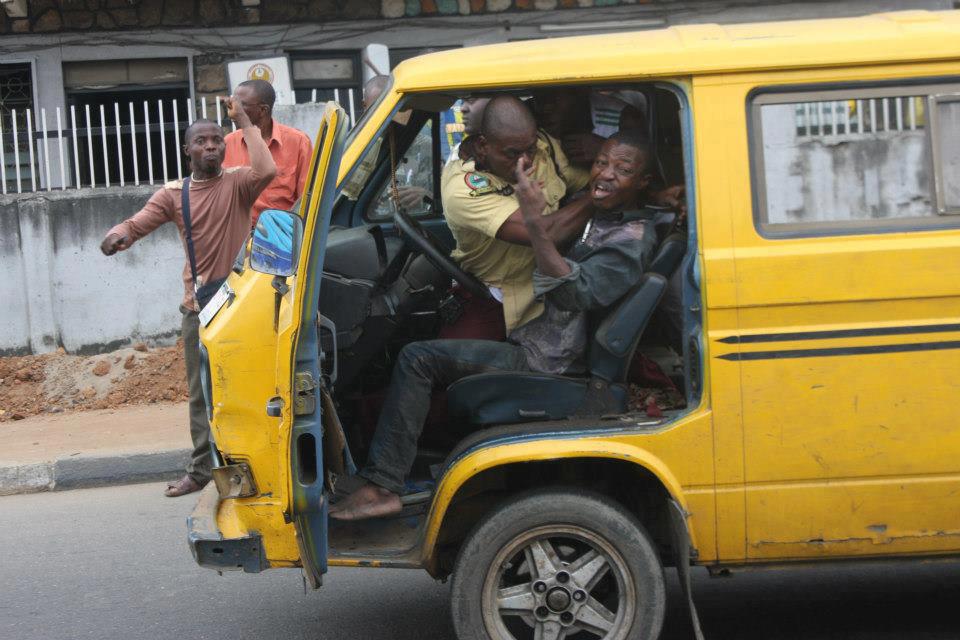
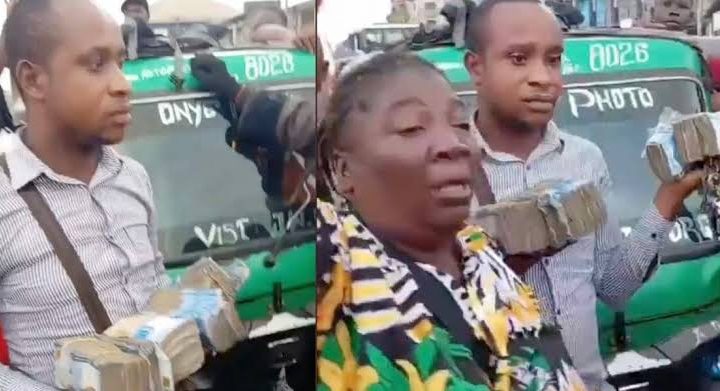
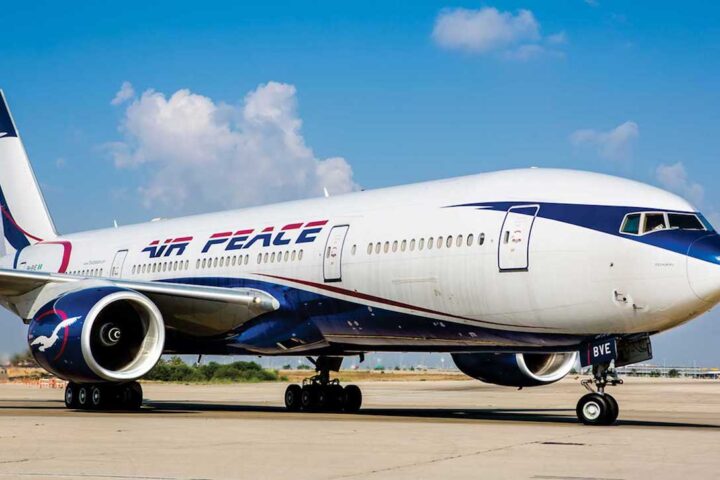








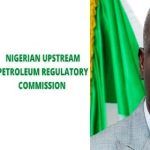


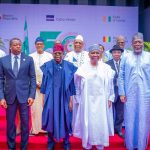
Follow Us